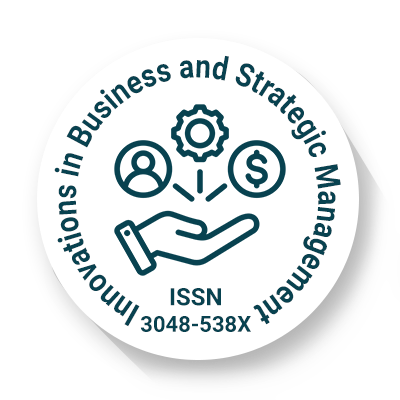
Innovations in Business and Strategic Management
OPEN ACCESS
ISSN: 3048-538X

OPEN ACCESS
ISSN: 3048-538X
Organizational behavior is a critical aspect of modern business management, focusing on the study of how individuals and groups interact within an organization. It encompasses various factors such as leadership styles, communication patterns, workplace motivation, and team dynamics, all of which play a vital role in shaping corporate culture and overall performance. Understanding organizational behavior allows businesses to create effective work environments that foster productivity, innovation, and employee satisfaction. In an era of rapid globalization, technological advancements, and evolving workforce expectations, companies must adapt to these changes by developing strategies that enhance collaboration, employee engagement, and ethical leadership.
A well-structured organizational behavior framework helps companies address workplace challenges such as conflict resolution, resistance to change, and workforce diversity. Organizations that prioritize emotional intelligence, ethical decision-making, and transparent communication can cultivate a culture of trust and accountability. Effective leadership and management approaches that align with behavioral principles ensure that employees remain motivated and committed to achieving business objectives. Furthermore, understanding employee behavior helps businesses design policies that support professional development, well-being, and overall job satisfaction, leading to improved performance and long-term retention.
With the rise of remote and hybrid work models, businesses must refine their organizational behavior strategies to maintain strong team cohesion and efficient communication. Digital collaboration tools, flexible work arrangements, and continuous feedback mechanisms have become essential in adapting to the evolving workplace landscape. Companies that invest in workplace culture and employee-centric policies create environments that encourage creativity, teamwork, and long-term success. Additionally, ethical governance and corporate social responsibility have gained importance, reinforcing the need for organizations to operate with integrity and transparency to build strong relationships with employees, customers, and stakeholders. Addressing workload and job stress in remote work settings requires structured task management, clear communication, and employee engagement initiatives to prevent isolation and fatigue.
Research in organizational behavior continues to evolve, providing valuable insights into workforce adaptability, strategic leadership, and corporate sustainability. By examining key behavioral trends and challenges, businesses can develop innovative management practices that enhance decision-making and drive operational excellence. Innovations in Business and Strategic Management is committed to publishing high-quality research that explores the latest advancements in organizational behavior. Through scholarly contributions, the journal aims to provide businesses, researchers, and policymakers with actionable insights that promote effective leadership, workplace transformation, and long-term business growth in an increasingly complex and competitive corporate world.